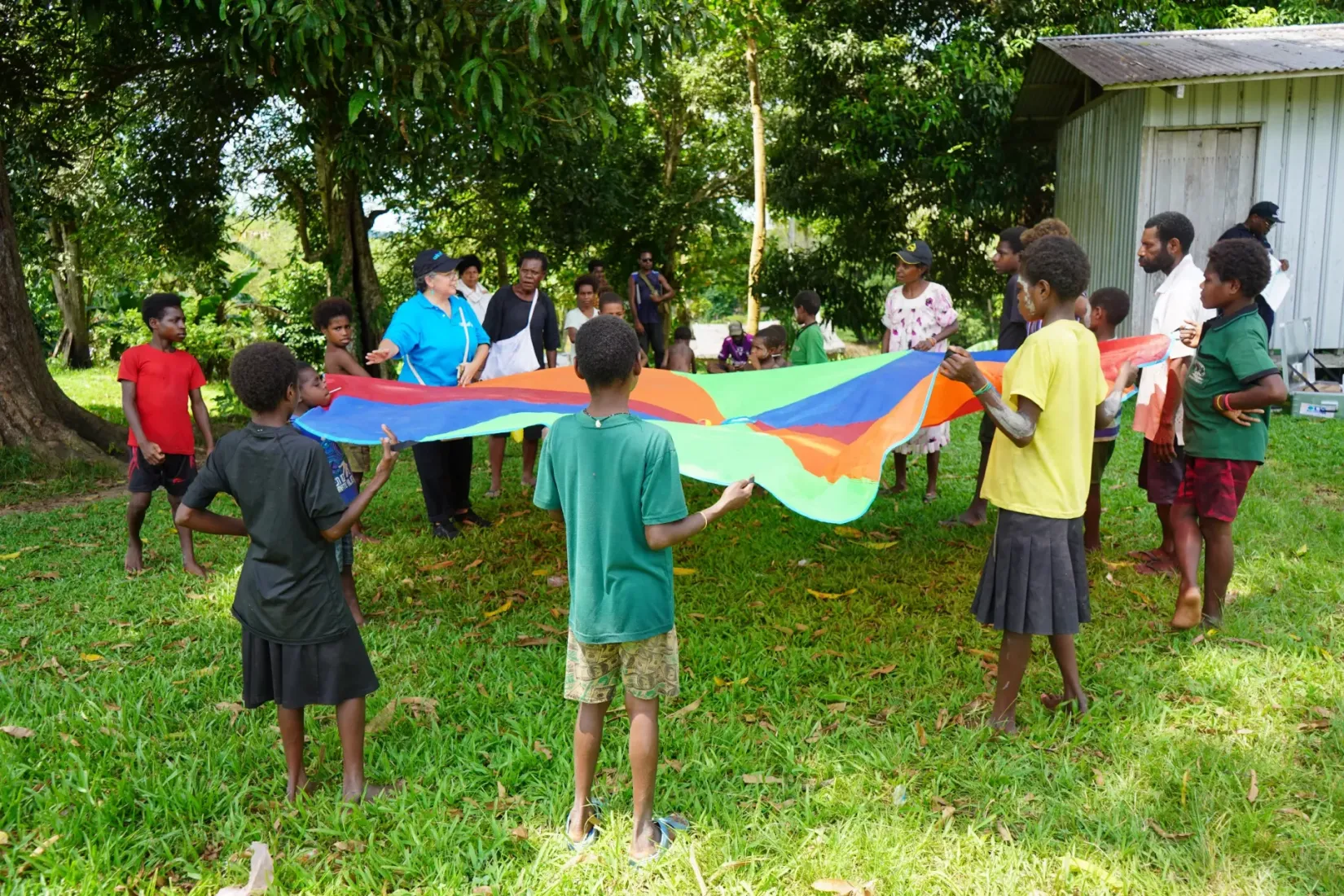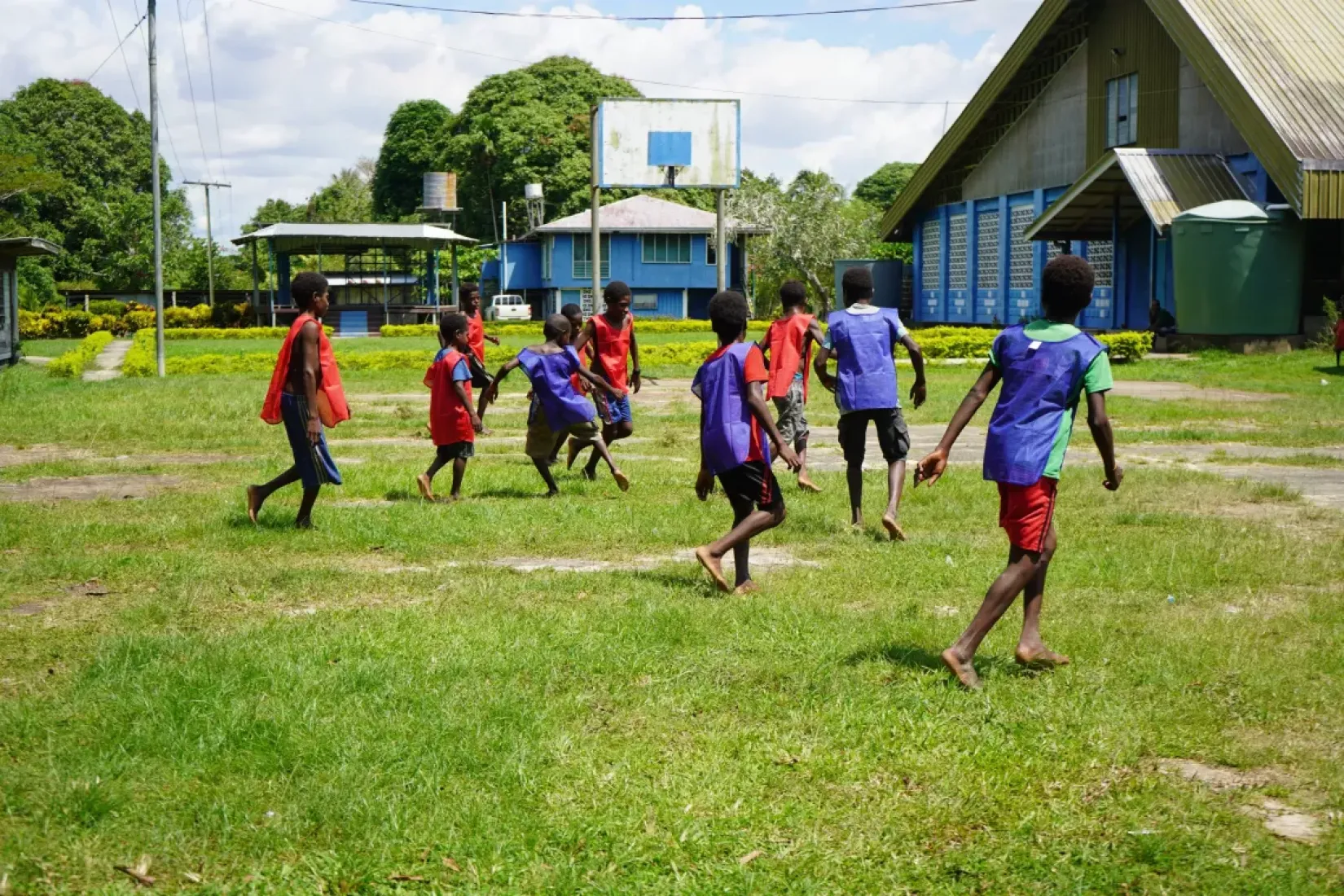Echoes of joy belie shadows of grief
22 August 2024
The struggles of East Sepik’s Massacre Survivors

ANGORAM, EAST SEPIK PROVINCE, 9 AUGUST 2024 - The laughter and shouts of a group of youngsters echo through the air as they chase a football across a makeshift playing field, the faded lines of a basketball court serving as their boundary.
Their excitement is a fleeting moment of joy. Beneath the surface of their excitement, a hint of unspoken anguish, grief, and struggle lingers, hinting at the stories they carry within – stories they wish were just bad dreams.
Each one has faced a harrowing journey, having lost one or more family members, and narrowly escaped a life-or-death situation.

“We need a lot of things now. When the enemies chased us, we ran away with nothing. We have no money to buy anything we want, we left our fishing grounds so we can’t earn an income,” says Damien (not his real name), a father of five whose wife and two young children were murdered in cold blood almost two months ago in Tambari village, Angoram District, East Sepik Province.
“My wife and my two children were beheaded. I brought one child here for the police to see and then buried him not far from here. I went back to the village with the police a few days later and buried my wife and my second child in shallow graves where I found them. Three of my children are here with me, one of them is there playing football now,” Damien quietly explains.
Damien is among the over 300 survivors, including more than 200 children, who fled a spate of brutal killings and sexual assaults committed by a gang of over 30 armed young men in the river villages of Tambari and Agrumara, located in the Kanda area of Angoram District on 17th July. At least 26 people, including 11 children were killed in this atrocious massacre.
While the immediate needs of the survivors are critical – food, shelter, clean water, and enhanced sanitation and hygiene facilities – this tragedy has also revealed deeper, systemic issues that affect the lives of people in remote areas where violence prevails. Addressing these underlying challenges is essential for fostering long-term resilience and stability in these communities.
For the past six years, the river communities in Angoram’s Kanda area have faced a significant absence of health and education services. Ongoing conflicts and violence between neighbouring villages, coupled with challenging access to these remote areas, have severely impacted families and children.
“There’s no school in our community, it was burned during a conflict six years ago. The nearest school is too far so none of our children have ever been to school in the past six years. Now I’m happy to see three of my children attending class.”
Damien
Shortly after the massacre, UNICEF delivered 100 hygiene kits and deployed a specialised team to provide psychosocial support to traumatised survivors.
UNICEF continues to be on the ground supporting health, nutrition, education, and protection services for these survivors currently living in care centres in Angoram.
Volunteers like Samantha from the host community, use educational and recreational resources donated by UNICEF to provide learning sessions for children in the care centres.
“Nobody here has ever been to formal school. I’m conducting learning sessions for children aged 6 – 18 years, focusing on early childhood and elementary education. Ongoing conflicts in their communities have forced parents to keep their children at home. Teachers, fearful for their safety, are reluctant to go and teach there,” says Samantha.
The last routine vaccination in these villages occurred in November 2017. Anita, a community health worker currently on leave but volunteering health services for survivors, confirms her last visit to these communities was also in November 2017.
“No one has brought them health services since. All these children up to the age of five years have never been immunised and can easily get sick – they can get polio, measles, whooping cough, or any communicable disease,” Anita explains.
“I’m a female and I can’t lead a team without the support of men to provide health services to these communities where there is a lot of conflict and violence. It’s very hard,” she adds.
UNICEF’s Chief for Child Protection, Paula Vargas, who is facilitating psychosocial support for deeply traumatised children and adults condemns the violence.
“It’s not only about this emergency. It’s not only about what these families are experiencing. It’s the violence that is happening in the country. We need to commit for a change, we need to say enough is enough. We need to build together a country with peace, without violence where children can grow, can play, can learn and can be happy”, Paula reiterates.









